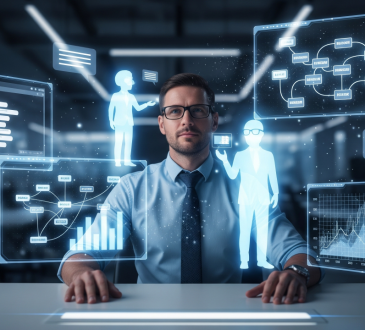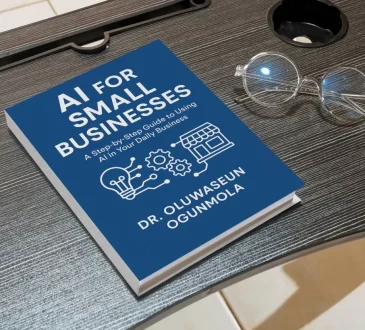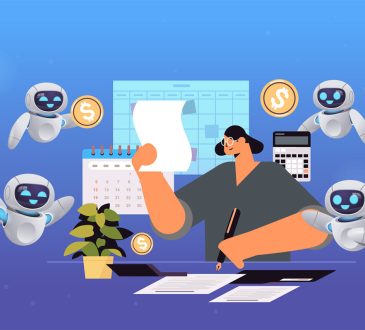Latest AI Developments and Innovations — How Artificial Intelligence Is Evolving Fast

Artificial Intelligence (AI) has quickly moved from being a niche corner of computer science to one of the most transformative forces shaping our world. Once limited to research labs, AI now powers everyday life — from healthcare diagnostics and financial predictions to educational tools and creative applications. In 2025, the pace of AI development is extraordinary, bringing breakthroughs that are redefining what machines can understand, create, and achieve.
The Acceleration of AI Capabilities
AI has evolved from performing single, narrow tasks to handling a wide variety of complex challenges. One major breakthrough is the rise of multimodal AI models — systems that can process and combine text, images, audio, and video. These models let machines “see,” “hear,” and “speak” at the same time, enabling smoother and more natural human-computer interactions.
Examples of these capabilities include:
- Summarizing video content in seconds
- Generating realistic visuals from simple text prompts
- Creating context-aware presentations or documents instantly
This seamless integration across different forms of data has made AI an essential co-pilot for businesses and individuals, boosting productivity and sparking innovation.
Another exciting frontier is autonomous reasoning and planning. Advanced AI models can now break down large objectives into smaller, manageable tasks, prioritize them, and execute them with minimal human input. This step brings AI closer to artificial general intelligence (AGI) — systems that can learn, adapt, and perform almost any intellectual task a human can.
AI in Healthcare: Smarter, Faster, and More Accessible
Healthcare is one of the most promising areas for AI, with systems now capable of diagnosing diseases, analyzing medical images, predicting patient outcomes, and tailoring treatments with remarkable accuracy.
Key developments include:
- AI assisting radiologists in detecting early signs of cancer, heart disease, and neurological disorders
- Genomic analysis enabling precision medicine customized to individual genetic profiles
- AI-powered administrative tools streamlining hospital workflows and reducing paperwork
AI health companions are also gaining traction. These digital assistants, integrated into wearable devices or mobile platforms, continuously monitor vital signs, track mental health, and provide real-time feedback. Combining continuous monitoring with predictive analytics, these tools empower people to take proactive control of their health.
Finance and the AI-Powered Economy
The financial sector has long embraced automation, but AI in 2025 is redefining finance entirely. Algorithms now provide:
- Real-time risk assessments
- Fraud detection
- Personalized investment advice
AI-driven predictive models analyze global market trends, social sentiment, and geopolitical events to help investors and banks make smarter decisions. Conversational AI systems also transform customer service, enabling instant, secure support for millions of clients at once.
Algorithmic trading has reached new levels of sophistication. Modern AI systems detect patterns invisible to human analysts, executing trades in milliseconds with optimized precision. Simultaneously, AI helps regulators monitor market integrity, ensuring transactions remain transparent and compliant.
AI is becoming central to managing and growing wealth globally, shaping the very foundations of the financial world.
Transforming Education with AI
AI is personalizing education like never before. Intelligent learning platforms now:
- Assess each student’s strengths and weaknesses
- Adapt lessons to individual learning speeds
- Provide real-time feedback
Teachers benefit from AI-assisted grading, lesson planning, and content creation, while students enjoy virtual tutors that can explain complex topics in multiple ways.
Language learning is particularly revolutionized. AI-driven conversational models simulate real-world interactions, helping learners gain fluency faster and more effectively than traditional methods.
Schools and universities also use AI analytics to:
- Predict student performance trends
- Optimize curriculum design
- Close learning gaps across socioeconomic and linguistic divides
This makes education more accessible, adaptive, and effective for everyone.
Creativity and the Rise of Generative AI
Generative AI has captured widespread attention for its ability to produce original content — from art and music to writing and software code.
Applications include:
- Writers co-creating stories with AI suggestions
- Musicians experimenting with AI-generated harmonies
- Designers visualizing concepts instantly
- Film and entertainment production using AI-driven effects, character generation, and voice synthesis
However, as AI-generated content grows, questions around authorship, copyright, and authenticity are becoming crucial. Governments and organizations are establishing ethical standards to ensure transparency and fair recognition.
Ethics, Regulation, and the Future of AI
Innovation is moving faster than regulation, making ethical governance a priority. Governments are increasingly focused on:
- Data privacy
- Algorithmic bias
- Misinformation
- Responsible AI use in surveillance and defense
Transparency and explainability are now essential. Organizations must clearly show how AI decisions are made, particularly in high-stakes sectors like healthcare, law enforcement, and finance.
Researchers are building ethical AI architectures with fairness checks and accountability mechanisms, while global collaborations aim to create international standards for safe AI deployment. The goal is to ensure AI serves humanity responsibly as it evolves.
Quantum AI and the Next Leap Forward
The next big breakthrough lies in quantum-enhanced AI. By combining AI with quantum computing, systems could process vastly larger datasets at unprecedented speeds. This opens doors to solving previously impossible problems:
- Complex molecular simulations for drug discovery
- Optimizing global energy systems
Although still in early stages, quantum AI could create super-intelligent systems capable of learning and reasoning far beyond today’s limits, potentially reshaping industries once again within the next decade.
Conclusion
AI is no longer a distant vision of the future. It is here, shaping healthcare, finance, education, and creative industries. Its impact is profound, helping humans achieve more, make smarter decisions, and innovate faster than ever before.
As AI continues to advance, balancing innovation with ethical, responsible development will be key. The evolution of AI is not just about creating smarter machines — it’s about building a more connected, inclusive, and intelligent world.




